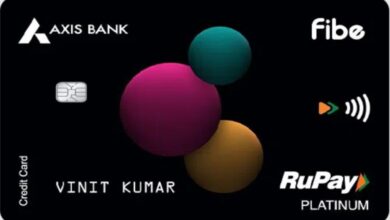What are the 4 types of credit cards?

There are four main types of credit cards:
- Standard/Classic Credit Cards
- Rewards Credit Cards
- Premium Credit Cards
- Secured Credit Cards
Credit cards are a popular form of payment and credit option for consumers. They allow individuals to make purchases and withdraw cash, even if they do not have the funds immediately available.
With a range of options available, it can be challenging to understand the differences between the different types of credit cards. In this article, we will discuss the four main types of credit cards: Standard/Classic Credit Cards, Rewards Credit Cards, Premium Credit Cards, and Secured Credit Cards.
- Standard/Classic Credit Cards Standard or classic credit cards are the most basic type of credit card. They offer a line of credit to the cardholder and typically have a low annual percentage rate (APR). Standard credit cards do not offer any rewards or benefits, and are best suited for individuals who are looking for a simple, no-frills option to make purchases and manage their credit.
- Rewards Credit Cards Rewards credit cards offer a range of benefits, such as cashback, travel miles, or points, to cardholders who make purchases with their card. These rewards are usually offered in exchange for spending on specific categories such as groceries, travel, or dining. Rewards credit cards usually have a higher APR than standard credit cards, so it is important to compare the rewards offered with the cost of the card to determine if it is a good value for you.
- Premium Credit Cards Premium credit cards are designed for individuals with excellent credit and high incomes. They offer a range of luxury benefits and perks, such as access to airport lounges, concierge services, and travel insurance. Premium credit cards usually have a high annual fee and a higher APR, so they are best suited for individuals who can take advantage of the benefits they offer and can afford the cost of the card.
- Secured Credit Cards Secured credit cards are a type of credit card designed for individuals who have limited or poor credit. They require a security deposit, which becomes the credit limit for the card. Secured credit cards are a good option for individuals who are looking to build or improve their credit. They usually have lower credit limits and higher APRs, but they provide an opportunity for individuals to prove their creditworthiness and potentially graduate to a standard or rewards credit card.
understanding the different types of credit cards can help you choose the best option for your financial needs and goals. Whether you are looking for a simple and straightforward option, a way to earn rewards, a premium experience, or a way to build your credit, there is a credit card that is right for you. It is important to compare the costs and benefits of different credit cards and choose the one that is the best fit for your financial situation.
It is important to use credit cards responsibly to avoid overspending and accumulating debt. Here are some tips to help you use credit cards effectively:
- Set a budget: Determine how much you can afford to spend each month and stick to that budget. Using credit cards to make purchases can be tempting, but it is important to avoid overspending and accumulating debt.
- Pay your balance in full each month: To avoid interest charges, it is best to pay your balance in full each month. If you are unable to pay your balance in full, try to pay as much as you can to minimize interest charges.
- Choose the right card for your needs: Consider your spending habits and financial goals when choosing a credit card. If you are looking to earn rewards, choose a rewards credit card. If you are looking to build your credit, choose a secured credit card.
- Monitor your credit report: Regularly check your credit report to ensure that there are no errors and to monitor your credit score. A good credit score can help you qualify for better interest rates and credit card offers in the future.
- Use security features: Take advantage of security features such as secure online shopping, fraud alerts, and credit monitoring to protect your personal information and prevent fraud.
- Read the terms and conditions carefully: Before applying for a credit card, make sure to read the terms and conditions carefully to understand the fees, interest rates, and other costs associated with the card.
By following these tips and using credit cards responsibly, you can take advantage of the benefits that credit cards offer while avoiding the risks. With a little effort, you can use credit cards to manage your finances, build your credit, and achieve your financial goals.






